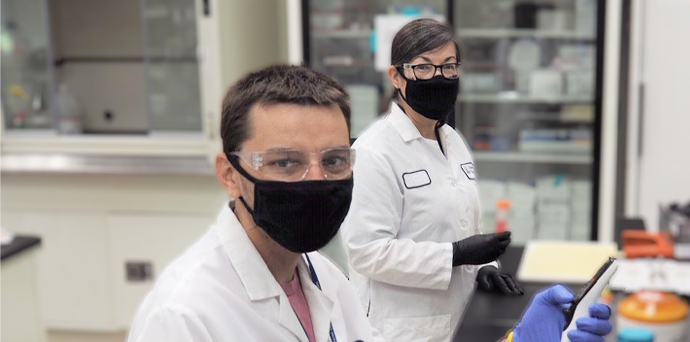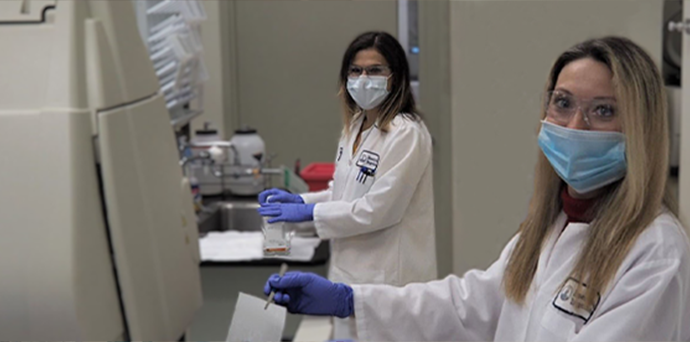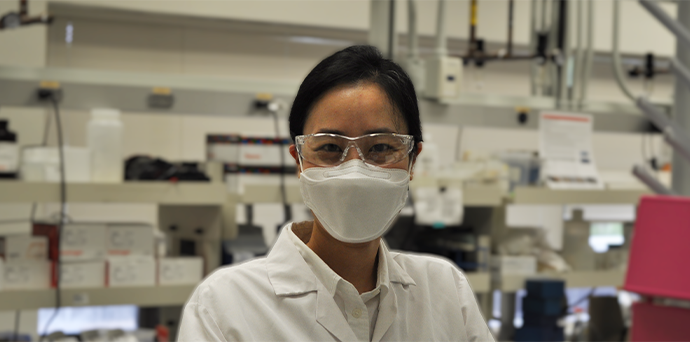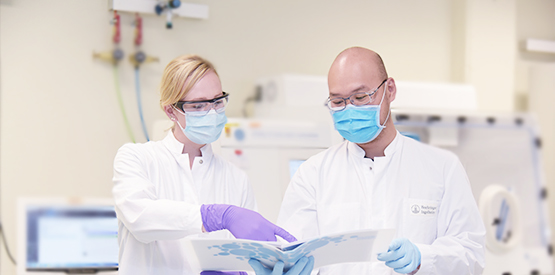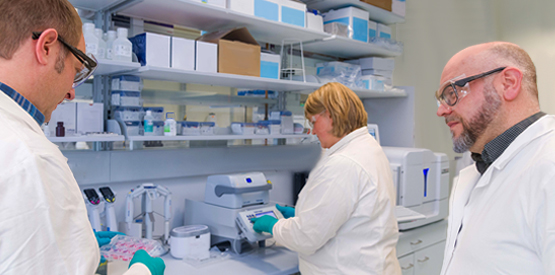The role of NK cells in Systemic Sclerosis
How do you propose improving the understanding of the role of natural killer cells in the progression of Systemic Sclerosis using novel disease relevant human cellular systems?

Preethi Vijayaraj
Principal Scientist
Boehringer Ingelheim
Call for proposals: All incoming answers accompanied by a collaboration proposal will be evaluated by a scientific jury, and, upon selection, chosen proposals are pursued through a joint collaboration with the successful applicants. Initial funding of up to 200,000 euros will be available for each selected proposal.
Background information
What is the context of the problem that we would like to solve?
Systemic sclerosis (SSc) is a complex, debilitating disease characterized by fibrosis of connective tissue. Prominent organs affected include skin as well as lung, heart and GI tract. Although the etiology of SSc remains obscure, it is currently understood to involve an interplay between vascular damage, autoimmunity and myofibroblast activation. Alterations of natural killer (NK) cell abundance and function have recently been demonstrated in diffuse cutaneous SSc (dcSSc) patients. NK cells are part of the innate lymphoid cells and represent about 5-20% of all circulating lymphocytes in humans. Improved understanding of how altered NK cell function contributes to the immunological and stromal cell abnormalities observed in SSc is likely to provide insights for the development of new therapeutics that can address the unmet medical needs of patients. Novel NK cell assays and/or computational approaches that more accurately model the complex dynamics of NK cell subsets during SSc development are necessary to define key disease-driving pathways and identification of new targets (genes, proteins) for intervention.
What potential solutions could be in scope?
The following potential approaches to answer our question include, but are not limited to the following:
- Cell culture systems including specific cell growth and maintenance conditions that enable the study of primary (healthy donor and/or patient-derived) NK cells and NK cell subsets.
- Co-culture methods and conditions that allow for the characterization of NK cell interactions and communication with different disease-relevant cell types (e.g. fibroblasts, endothelial cells, macrophages, epithelial cells, pericytes and/or adipocytes).
- Identification of innovative cellular systems using primary or transformed human cells that allow for the identification, characterization and screening of pathways with pathological function in SSc.
- Novel in vivo models of SSc driven by NK cell biology.
- Application of novel computational methods that inform on the role of functionally unique NK cell subsets in health and disease.
What potential solutions would be out of scope?
- Proposals for cellular systems lacking applications to the disease setting.
- Proposals that rely primarily on the use of previously established NK cell lines (e.g., NK-92).
What benefits do we offer to you in exchange for having submitted a solution?
If your project is selected, you will have the opportunity to directly collaborate with the Immunology and Respiratory Disease Research team of Boehringer Ingelheim and tap into their experience in systemic sclerosis. You can expect appropriate funding for the prospective collaboration period. Your exact funding request should be outlined in your proposal. As a framework, we suggest that your initial funding request is structured in milestones and does not exceed 200,000 euros per submitted project in total.
Our collaboration agreement will provide full transparency about each partner’s rights & obligations (including intellectual property rights). As part of the agreement, you will be encouraged to publish following the collaboration agreement (to be negotiated in good faith).
To maintain the highest degree possible in an open innovation environment, we plan to announce the winner(s) publicly and feature them on opnMe.com and our social media channels.
What are the key success criteria on which we base our selection for the best answer?
We are seeking research collaboration proposals that contain:
- A well-structured proposal outlining a new and compelling scientific idea.
- A novel, testable working hypothesis distinct from those previously published.
- Framing the questions and the innovation aspects which includes a well thought-through project plan with key decision points and budget requirements.
- Proven track record in the required field of expertise.
- Outlining the technical feasibility of the innovative proposed approach.
- The quality and feasibility of potentially existing data and/or the experimental plan that will be used to test the hypothesis.
- Ability to implement the outlined solution as part of a scientific collaboration project including access to a laboratory.
What information should be included in your answer submission?
Please use our answer submission template to provide a 2-3 page non-confidential proposal (available for download here).
If confidential data exists that would strengthen the proposal, please indicate that information is available to share under a Confidential Disclosure Agreement (CDA). If we find the non-confidential concept proposal sufficiently interesting, we will execute a CDA for confidential discussions.
Summary
We are currently seeking answers for the following scientific challenge: How do you propose improving the understanding of the role of natural killer cells in the progression of Systemic Sclerosis using novel disease relevant human cellular systems?
All incoming answers accompanied by a collaboration proposal will be evaluated by a scientific jury, and, upon selection, chosen proposals are pursued through a joint collaboration with the successful applicants. Initial funding of up to 200,000 euros will be available for each selected proposal.
We can only accept research proposals if they arrive by the submission deadline on May 15, 2023, 11.59 pm PST.




